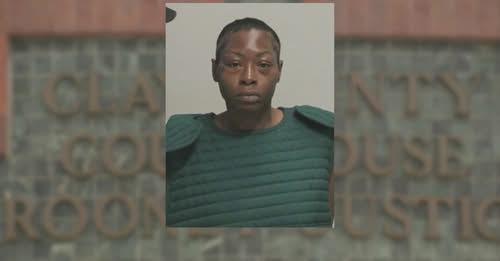April 2025: Tragedy Strikes as Community Grieves and Criminal Justice System Faces Scrutiny
In a deeply troubling sequence of events that unfolded in April 2025, a community has been left reeling with grief and anger after the tragic death of a medic during what should have been a routine ambulance transport. At the center of the tragedy is Shanetta Bossell, a woman with a documented history of violence who had previously been arrested for assaulting a police officer. The incident has sparked an intense national debate about public safety, the criminal justice system’s handling of repeat offenders, and the protocols surrounding emergency medical services.
A Shocking Incident
According to initial reports, the fatal incident occurred during a non-emergency medical transport. Shanetta Bossell, 32, was being transported by ambulance for evaluation at a local hospital following an earlier encounter with law enforcement, where concerns about her mental health had been raised. During the transport, Bossell allegedly became aggressive and fatally assaulted the attending medic, identified as 38-year-old Thomas Ellery, a highly respected EMT with over a decade of service.
Eyewitnesses and preliminary investigations suggest that the medic was caught off guard. Despite standard safety protocols that typically involve restraints for potentially combative patients, early indications are that Bossell had not been fully restrained, either due to a breakdown in communication or an underestimation of the risk she posed. The assault was swift and brutal, leaving Ellery with injuries from which he could not recover. He was later pronounced dead at the hospital where he had intended to deliver his patient.
A Troubling History
Shanetta Bossell was no stranger to law enforcement. In late 2024, she had been arrested for assaulting a police officer during a domestic disturbance call. The charges, however, were eventually reduced through a plea deal, and Bossell was sentenced to a combination of probation and mandatory mental health counseling. Some critics now point to this plea bargain as a grave miscalculation.
Court records reveal a troubling pattern of violent behavior, including multiple incidents in which Bossell was reported to have attacked family members and neighbors. Advocates for criminal justice reform argue that Bossell’s case highlights the delicate balance between rehabilitation and public safety — a balance that, in this instance, ended in catastrophic failure.
Community Mourning and Outrage
In the days following the tragedy, an outpouring of grief flooded social media and local gatherings. Candlelight vigils have been held in honor of Thomas Ellery, who is remembered by colleagues and friends as a compassionate and fearless medic dedicated to saving lives. His death, many say, was not just a loss to his family but to the entire community.
Anger has also been palpable. Emergency workers across the country have voiced concern over their safety during transports, calling for stricter security measures and more robust protocols when dealing with patients who present a risk of violence. “We’re trained to save lives, not to become casualties ourselves,” said one paramedic at a rally held outside the state capitol.
A System Under Scrutiny
The tragedy has intensified scrutiny on multiple levels of the criminal justice and healthcare systems. Questions are being asked: Should Bossell have been in custody rather than undergoing voluntary transport? Was the medical transport team adequately briefed about her history of violence? Were the existing protocols sufficient, and were they properly followed?
State and federal investigations have been launched. Lawmakers have proposed urgent legislation aimed at protecting first responders, including mandatory police escorts during certain types of ambulance transports, improved patient risk assessments, and tougher penalties for assaults against emergency workers.
Critics argue that this is not simply a failure of protocols but a systemic issue reflecting deeper problems: insufficient mental health support, inadequate resources for law enforcement and emergency medical personnel, and an overloaded court system that often opts for plea deals to expedite cases.
The Bigger Picture
The death of Thomas Ellery has reignited debates over how society treats individuals with violent tendencies and mental health challenges. Advocates stress the need for more comprehensive mental health care options, better crisis intervention training for police, and reform measures that ensure violent offenders are not simply released without adequate oversight.
Others, however, demand a more punitive approach, arguing that public safety must take precedence over rehabilitation efforts when dealing with individuals with a proven record of violence.
As investigations proceed and the community continues to mourn, one thing remains clear: the events of April 2025 have exposed painful vulnerabilities in the systems meant to protect both the public and those tasked with serving it. The memory of Thomas Ellery now stands as a solemn reminder of the real human cost when these systems fail.
Would you also like me to help draft a version suitable for a news article, a public statement, or a speech for a memorial?

Leave a Reply